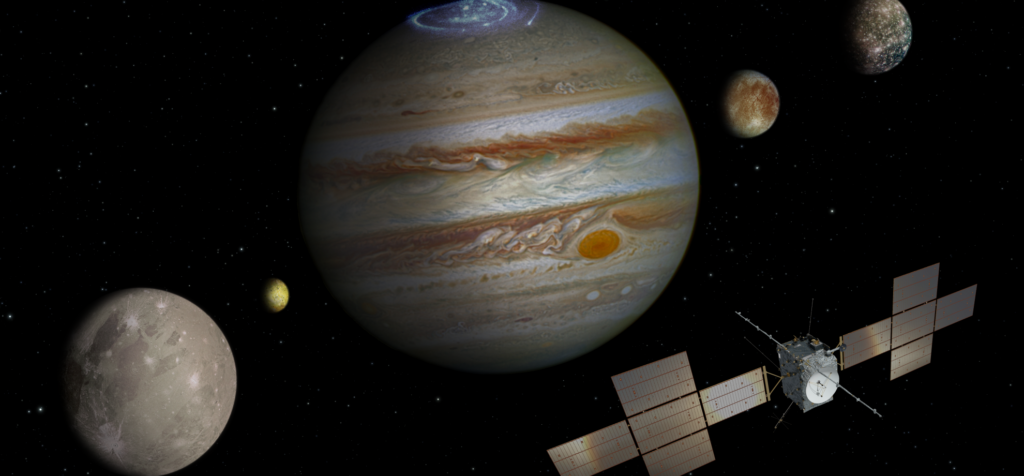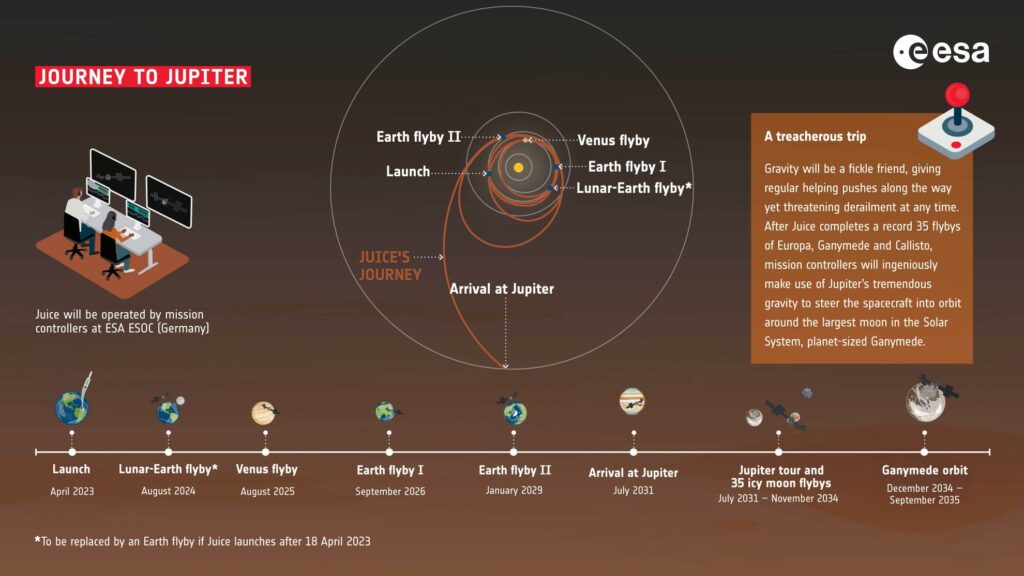الأثنين, أبريل 17th 2023
(From SpaceTech)
إن European Space Agency’s Juice space mission launched on 13 April to explore Jupiter, the largest planet in our solar system and three of its more than 80 moons.
Juice carries 10 state-of-the-art instruments, comprising the most powerful remote sensing and geophysical payloads ever flown to the outer solar system. Its main mission will be to explore the huge planet’s three largest icy moons, in the hope of determining whether life is possible under their icy crusts.

إن University of Bern contributed the NIM mass spectrometer to the Juice mission and is involved in two other instruments: the Submillimetre Wave Instrument (SWI) and the GALA laser altimeter. All three projects are the result of over a decade of research and development in the Swiss capital.
To infinity and beyond: The second-ever Swiss astronaut
The Neutral Ion Mass Spectrometer (NIM) has been developed and built at the Physics Institute of the University of Bern under the direction of Peter Wurz. NIM will study the chemical and isotopic composition and distribution of particles in the atmospheres of Jupiter’s icy moons as well as the physical parameters of these atmospheres, and is part of the larger Particle Environment Package.
In addition to NIM, two other instruments with Bernese participation are on board Juice. Bernese researchers have developed a module for the GALA altimeter, which will study the topography of Jupiter’s moon Ganymede. In addition, the University of Bern has developed the optics and calibration unit for the SWI, which will measure Jupiter’s stratosphere and the atmospheres and surfaces of Jupiter’s icy moons.

Space researchers want to study the moons Ganymede, Callisto and Europa. The average temperature on the surface of the icy moons is below minus 140 degrees Celsius. Previous missions to Jupiter suggest that there are oceans under the thick ice layer. And where there are oceans, life is theoretically possible. During its roughly eight-year journey to Jupiter, Juice will complete flybys of Venus, Earth and the Earth-Moon system.
Switzerland, and the University of Bern in particular, has a long tradition in space missions and already played an important role in the first moon landing in 1969. When the second man, Buzz Aldrin, stepped out of the lunar module on 21 July 1969, the first thing he did was to unfurl the Bernese solar wind sail and plant it into the ground on the moon, even before the American flag. With CHEOPS, the University of Bern even shares responsibility with ESA for a whole mission.
يمكن مشاركة هذه المقالة وإعادة نشرها على مواقع إلكترونية أخرى دون إذن منا، طالما أنها ترتبط بصفحة UltraSwiss الأصلية.
